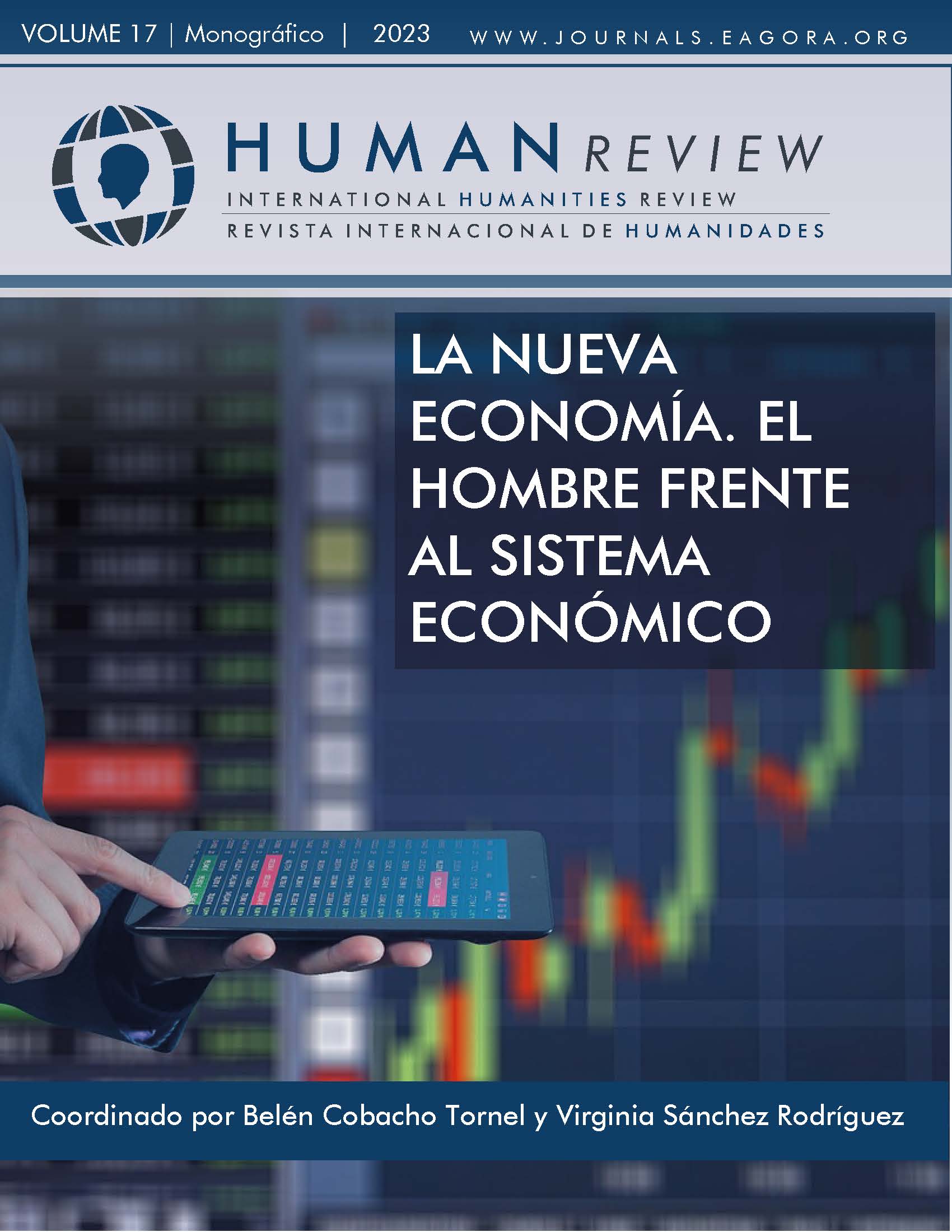The humanistic organization in the complexity era
DOI:
https://doi.org/10.37467/revhuman.v12.4734Keywords:
Humanism, Organizations, Complexity, Change, Critical thinking, Leadership, Mental flexibilityAbstract
The change in the digital and complex society requires the elaboration of a business philosophical framework adapted to the new paradigm of the 21st century The company is a modern institution of enormous influence and power an reveals itself as an agent of change, creator of realities, driver of innovation and catalyst of transformation and personal development. The new business cultures must focus on the person as source of advancement and progress. Humanism is the current that acquires meaning and protagonism to enhance the role of man and women in a fast, complex, uncertain, changing and turbulent context.
References
Bennett, N., & Lemoine, G. J. (2014). What a difference a word makes: Understanding threats to performance in a VUCA world. Business Horizons, 57(3), 311-317. DOI: https://doi.org/10.1016/j.bushor.2014.01.001
Brunner, J. (1998). Globalización, cultura y posmodernidad. Santiago de Chile: Fondo de Cultura Económica.
Covey. S. (1993). El liderazgo centrado en principios. Barcelona: Paidós Ibérica.
Chaves, A., del Cerro, S. & Moreno, C. (2017). Organizaciones y liderazgo humanista. Revista de Análisis Transaccional. Órgano de difusión de APPHAT, (3), 15-29.
Chiavenato, I. (2002). Gestión del talento humano. México: McGraw Hill.
Crainer, S. (1997). Los 50 mejores libros de la Gestión Empresarial. Prólogos y comentarios de Gary Hamel. Bilbao: Ediciones Deusto.
Davis, K. (2000). Comportamiento humano en el trabajo. México: McGraw-Hill.
De Sendagorta, E. (2008). El humanismo en el liderazgo empresarial. Revista Empresa y Humanismo, (11), nº 2, 11-32.
Facione, P. (2007). Pensamiento Crítico: ¿Qué es y por qué es importante? Insight assessment, nº22, 23-56.
García, S. (2022). La resiliencia de las organizaciones. El secreto está en el sistema. Barcelona: Libros de cabecera.
Kaufmann, A. (1993). El poder de las organizaciones. Madrid: Esic Editorial.
Leider, R. J. (2008). La tarea fundamental del liderazgo: el autoliderazgo. En El líder del futuro, F. Hesselbein, M. Goldsmith y R. Beckjard. Barcelona: Deusto, 217-227.
Marín Ardila, L, F. (2007). La noción de paradigma. Signo y Pensamiento, (50), 34-45.
Medina, C. (2010). Los estudios organizacionales entre la unidad y la fragmentación. Cinta Moebio, (38), 91-109. DOI: https://doi.org/10.4067/S0717-554X2010000200005
Melé, D. (2003). The challenge of Humanistic Management. Journal of Business Ethics, (44), 77-88. DOI: https://doi.org/10.1023/A:1023298710412
Nonaka, I. (1988). Toward Middle-Up-Down Management: Accelerating Information Creation. Sloan Management Review, 29(3), 1-10.
Pérez Uribe, R. (2006). Liderazgo visionario: centro del conocimiento Revista EAN (58), 79-86. DOI: https://doi.org/10.21158/01208160.n58.2006.388
Pfeffer, J. (1998). The human equation: building profits putting people first. Harvard Business School Press. Boston: Mass.
Pidal. M.J. (2009). La teoría del caos en las organizaciones. Cuadernos Unimetanos, (18), 29-33.
Prigogine, I. (1995). ¿Qué es lo que no sabemos? Conferencia pronunciada en el Forum Filosófico de la UNESCO.
Robbins, S. (2004). Comportamiento Organizacional. México: Pearson Educación.
Schein, E. (1988). La cultura empresarial y el liderazgo. Una visión dinámica. Barcelona: Plaza & Janes.
Sutil, L. & Miret, M. (2014). Neurociencia y caos en la gestión organizacional. Revista Internacional de Economía y Gestión de las Organizaciones. 3 (2), 19-33.
Sutil, L., Pacheco, R., León, E., García Fraile, L., Rienda J.J., Jiménez, P., et al. (2013). Neurociencia, empresa y marketing. Madrid: ESIC.
Taylor, F. (1911). Los principios del management científico. Nueva York: Harper & Brothers.
Tsoukas, H & Chia, R. (2002). On organizational becoming: Rethinking organizational change. Organization Science, 13(5), 567-582. DOI: https://doi.org/10.1287/orsc.13.5.567.7810
Villalobos, J. V. Guerrero, J. F., Ramírez, R. I., Díaz, L., Ramos, Y., Enamorado-Estrada, J., & Ruiz-Gómez, G. (2020). Karl Popper y Heráclito: Antecedentes y problemas actuales de la Filosofía de la Ciencia. Opción: Revista de Ciencias Humanas y Sociales, (92), 984-1018.
Yarce, J. (2011). La empresa como un sistema humano. Bogotá: Universidad Católica de Colombia
Downloads
Published
How to Cite
Issue
Section
License
Those authors who publish in this journal accept the following terms:
- Authors will keep the moral right of the work and they will transfer the commercial rights.
- After 1 year from publication, the work shall thereafter be open access online on our website, but will retain copyright.
- In the event that the authors wish to assign an Creative Commons (CC) license, they may request it by writing to publishing@eagora.org









